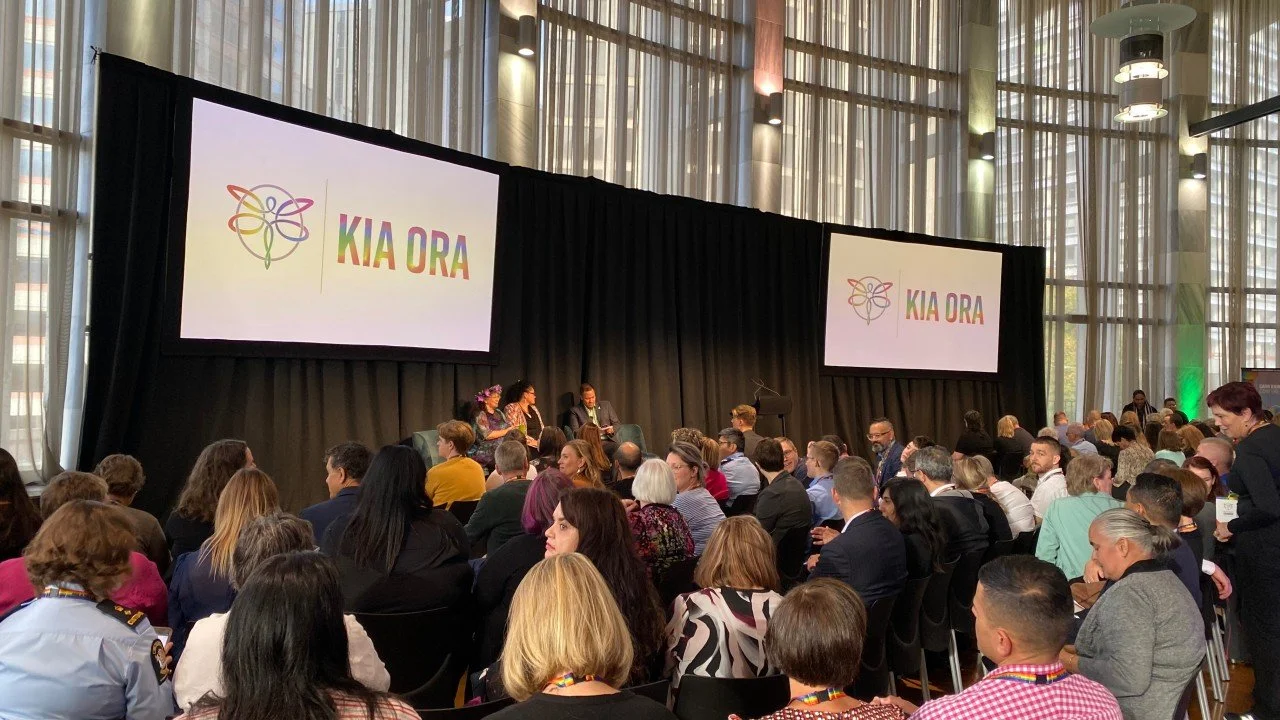Why DEIB: From Networks to System Change
At the Cross Agency Rainbow Network (CARN) Conference - Photo Credit: Rāwā Karetai-Wood-Bodley
Why DEIB?
For me, diversity, equity, inclusion, and belonging (DEIB) are not just buzzwords or policies. They are the foundations of dignity, trust, and excellence in any workplace or system.
I’ve spent much of my career weaving DEIB into the fabric of organisations across Aotearoa. I’ve spoken about these principles for years, in health, government, education, and community spaces, helping teams, leaders, and boards understand why responsiveness is not optional, but essential.
But my why goes deeper than professional expertise. I live at the intersections: Tangata Whaikaha Māori | Disabled indigenous, Pacific, bisexual, takatāpui | rainbow, disabled, a parent. My life has taught me what happens when belonging is absent, and what’s possible when it is present.
“DEIB isn’t a side project. It’s the compass that guides organisations toward fairness, safety, and impact.”
The Challenge of Building DEIB
Embedding DEIB is not easy.
I’ve worked across All-of-Government spaces, including the Cross Agency Rainbow Network (CARN), We Enable Us (disability network), Māori networks, and other staff-led groups. These networks matter; they give communities visibility, create accountability, and give voice to staff who are too often sidelined.
But networks alone are not enough.
I’ve seen organisations treat DEIB as “extra”, something to celebrate during awareness weeks, but not embedded in hiring practices, policies, or funding. I’ve seen leaders champion diversity in public, but resist equity in decision-making. I’ve seen belonging promised, but not delivered.
And I know what it feels like personally when spaces don’t reflect who you are. It’s exhausting. It’s alienating. And it’s avoidable.
DEIB as Practice, Not Policy
Over the years, I’ve helped organisations move from intention to practice. Some key lessons I’ve shared:
Diversity is who is in the room. It matters, but it is just the beginning.
Equity is about access and outcomes. Are systems fair, or do they advantage some and disadvantage others?
Inclusion is about voice. Whose ideas count? Whose stories are heard?
Belonging is about safety. Do people feel they can show up as their full selves without fear?
I’ve seen the power of DEIB when it’s embedded into performance frameworks, when it’s measured through data, and when it’s reflected in leadership tables. But most of all, I’ve seen its power in people, the relief in a Rainbow staff member knowing they can be open, the empowerment of a disabled colleague when adjustments are provided without fuss, the joy of Māori kaimahi seeing te ao Māori valued rather than tolerated.
“Belonging is not about fitting in. It’s about creating systems where no one has to leave part of themselves at the door.”
My Why in DEIB
So why DEIB?
Because I’ve seen how it transforms workplaces, services, and systems. I’ve seen frontline staff provide safer care when they know about bias. I’ve seen policy improve when communities are at the table. I’ve seen networks like Cross Agency Rainbow Network (CARN) and We Enable Us build solidarity and courage across government.
And because I know what it’s like to walk into a room where no one looks like you, speaks like you, or believes you belong there. That memory drives me to make sure others don’t feel the same.
This is why I continue to speak, train, and advise organisations on DEIB. Not because it is trendy, but because it is transformational.
“When we embed DEIB, we don’t just change organisations. We change lives.”
From Awareness to Action
Diversity, equity, inclusion, and belonging are not optional extras. They are the conditions for innovation, trust, and impact. They are the cornerstones of wellbeing in workplaces and the health system alike.
My mahi, across government, health, and community, has always been about turning DEIB from a set of values on paper into lived reality. The challenge now is for every leader, every workplace, every system to do the same.
Because the future we are building, for Hiwa, for all our tamariki, must be one where belonging is not aspirational, but guaranteed.
🔗 Follow me for more reflections on systems change, equity leadership, and human rights diplomacy.
🖤 Ko te pae tawhiti whāia kia tata. Ko te pae tata whakamaua kia tīna. | Seek out the distant horizons so they may become close. Hold fast to the close horizons so they may be secured.


